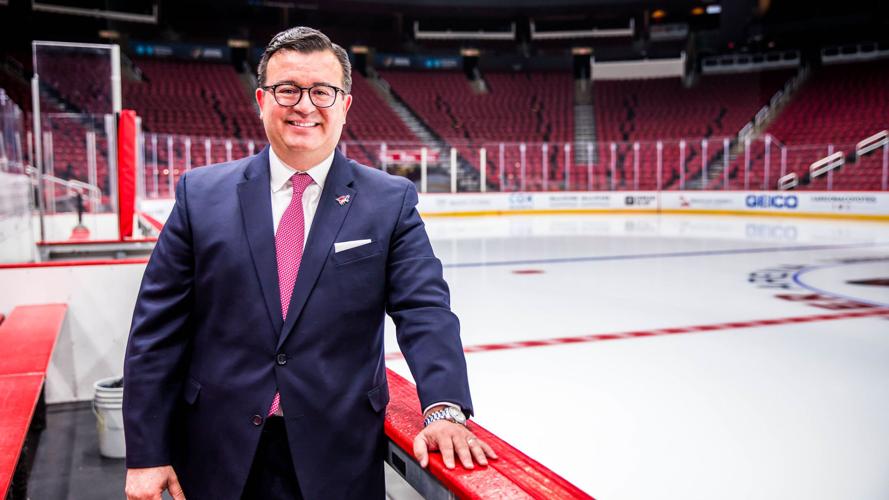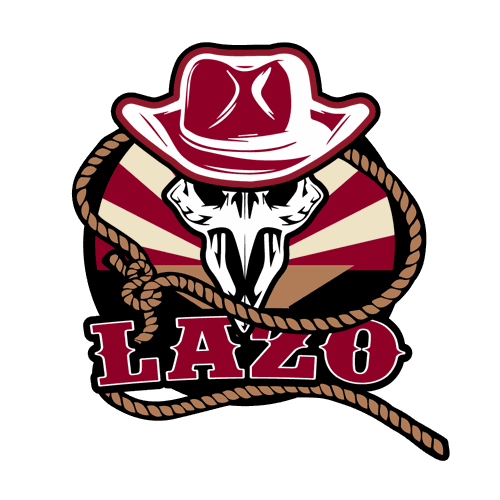Shortly after Xavier Gutierrez was installed as the new president and CEO of the NHL’s Arizona Coyotes in June, he drove south to meet with the Tucson Roadrunners — the Coyotes’ top minor-league affiliate.
Among Gutierrez’ first orders of business in The Old Pueblo: snag a sure-to-be limited-edition Correcaminos jersey.

The Roadrunners planned to wear Correcaminos jerseys last March, but the COVID-19 pandemic forced them to cancel.
“That was the very first thing I did in Tucson,” said Gutierrez, whose role overseeing the Coyotes’ operation also means he’s in charge of what’s taking place with the Roadrunners. “My wife framed it for our game room.”
Correcaminos is the Spanish translation of Roadrunners, and the fourth-year American Hockey League club was scheduled to wear special purple alternate jerseys emblazoned with that name for the first time in a March 28 game at Tucson Arena.
That game never happened; two weeks earlier, the Roadrunners’ season effectively ended as the coronavirus pandemic paused the entirety of America’s professional sports landscape.
Gutierrez, who was born in Guadalajara, Mexico, before his family moved to the United States when he was 5 years old, said getting his hands on one of those Correcaminos jerseys was a bit personal.
Gutierrez is the NHL’s first-ever Latino team president and CEO.
The Coyotes — and Roadrunners — are his teams. He wants them to be Arizona’s, too. The Roadrunners are planning a year-round effort to court the 43% of Tucsonans who identify as Latino or Hispanic.
Gutierrez visited Tucson earlier this month for the Roadrunners’ Hispanic Heritage Month celebration. Gutierrez joined Roadrunners staff, Sunnyside High School’s Mariachi band and representatives of Tucson police and fire departments and FC Tucson in the Tucson Arena parking lot for a “drive-thru” community day; the organization collected clothing, canned goods and more, while allowing fans to participate in socially-distant games and win prizes right from their vehicles.
Efforts to reach Tucson’s Hispanic community must go beyond just one month, Gutierrez said.
“We’re going to go toward the fan-in-waiting,” he said. “When you look at the Latino community, it’s there. It’s there to be part of our fan base. It’s there to be part of our corporate partnership base. It’s there to be part of our cultural and community outreach. And it’s up to us to extend our hand, to open our doors, to be intentional about our outreach, to be culturally appropriate and relevant about our outreach, and to be innovative.”
Gutierrez admits that last word — innovative — is embedded in his vocabulary these days. He and his staff are trying to re-boot two professional sports teams located 100 miles apart during a global pandemic.
While it’s yet to be seen if Correcaminos ends up on another jersey down the line, the Roadrunners have unveiled what the club is calling its Hispanic Heritage alternate identity: El Lazo. The El Lazo logo “features the skull of a Roadrunner in celebration of Dia de Los Muertos … and the All Souls Procession,” the team said.

The Roadrunners will identify as El Lazo for select games next sesaon.
El Lazo translates to lariat or lasso. The team said it’s a nod to the City of Tucson’s seal.
The Roadrunners plan to wear El Lazo jerseys at select home games in 2020-21.
Assuming, of course, that there are games.
While the organization has talked about what happens if the Roadrunners must play without fans and has discussed what happens if an AHL season doesn’t happen at all, “the short answer is we are planning — absolutely planning — on there being a season, and we are absolutely planning on there being a season with fans,” Gutierrez said.
“But you put a stake in the ground and say ‘that’s the plan,’ and then you adjust. You course-correct. And unfortunately, a lot of the things we have to adjust to are not in our control,” he added. “Where the pandemic goes from a health issue is something we have zero visibility on and zero real control over.”
The Roadrunners also don’t have a say into what decisions local government agencies will make in terms of allowing fans into games, Gutierrez said.
“And the other thing, to be quite honest, is the reaction from fans once we do open it up,” said Gutierrez, who once worked as a financial analyst for the NFL. “When you look at the NFL, there are fans that are willing to get into the arenas, and Major League Baseball just opened up the championship series for fans in a limited capacity. Again, there seems to be a pent-up interest by fans to be part of the sports experience.
“We’d imagine that’s the same for hockey both at the NHL and AHL level. But it’s hard. For us to be able to say ‘absolutely this is going to happen,’ that’s a hard thing for us.”
What Gutierrez is willing to say will “absolutely happen”: More community-oriented efforts to grow the fanbases of both the Coyotes and Roadrunners.
Tucson’s team averaged just over 4,000 fans per home game last season, well below the AHL’s average of about 5,500. The Coyotes’ attendance at Glendale’s Gila River Arena has been a hot topic league-wide for more than a decade. Though they made the postseason, the Coyotes finished 28th out of 31 NHL teams in home attendance at about 14,600 per game.
“As much as I want them to be hockey fans, I want them to be Coyotes and Roadrunners fans,” Gutierrez said of those he sees buying in. “Obviously, we’re here talking about the Latino community, but I say this about the other cohorts that I’d like for us to go after. Young people. Women. Families. Other multicultural communities.
“Quoting the great Wayne Gretzky, ‘We’re going to go where the puck is going.’ And where is the puck going when we look at our community? It’s going to these cohorts and it makes sense for us to be aligned with that.”







